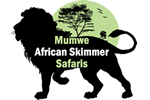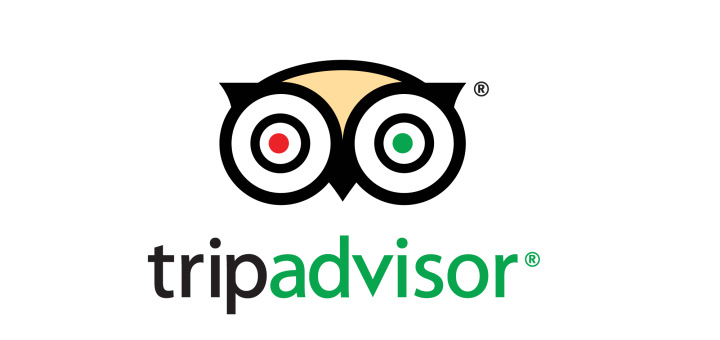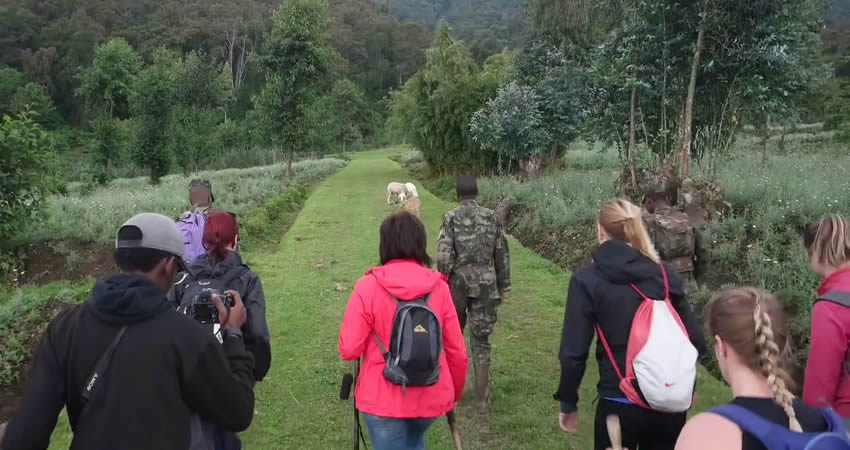
How Technology Has Transformed Tourism in Uganda
Uganda’s tourism industry has undergone a remarkable transformation driven by rapid technological advancement and digital innovation. From the introduction of mobile money services to sophisticated online booking platforms, technology has revolutionized how tourists discover, plan, book, and experience Uganda’s extraordinary attractions. This digital revolution has not only enhanced visitor experiences but also created new opportunities for local businesses, improved accessibility to remote destinations, and strengthened Uganda’s position as a premier African tourism destination.
As part of Uganda’s broader digital transformation journey, the tourism sector has embraced technology as a catalyst for growth, efficiency, and sustainability. The integration of digital solutions has addressed traditional challenges while creating innovative pathways for economic development and job creation across the tourism value chain.
Mobile Money Revolution: Transforming Payment Systems
The Mobile Financial Services Breakthrough
One of the most significant technological innovations to impact Uganda’s tourism sector has been the widespread adoption of mobile money services. This breakthrough has fundamentally changed how tourism transactions are conducted, making payments more accessible, secure, and convenient for both tourists and service providers.
Mobile money platforms have eliminated many barriers that previously complicated tourism transactions, particularly in remote areas where traditional banking infrastructure was limited. Tour operators, accommodation providers, and local service vendors can now receive payments instantly, improving cash flow and reducing the risks associated with handling large amounts of cash.
Enhanced Payment Accessibility
The mobile money revolution has particularly benefited small-scale tourism operators and community-based tourism initiatives. Local guides, craft vendors, cultural performers, and community tourism groups can now accept payments directly through mobile platforms, ensuring immediate access to earnings and reducing dependency on intermediaries.
For international tourists, mobile money integration has simplified expense management during their Uganda visits. Many tourists can now make payments for services, tips, and purchases using mobile platforms linked to their international payment systems, reducing the need to carry large amounts of cash and providing better transaction records.
Impact on Rural Tourism Development
Mobile money has been instrumental in unlocking tourism potential in rural and remote areas of Uganda. Previously, the lack of traditional banking infrastructure hindered tourism development in these regions. Mobile money services have enabled communities near national parks and cultural sites to participate more fully in the tourism economy, receiving direct payments for accommodation, guiding services, and cultural experiences.
Online Booking Platforms and Digital Reservations
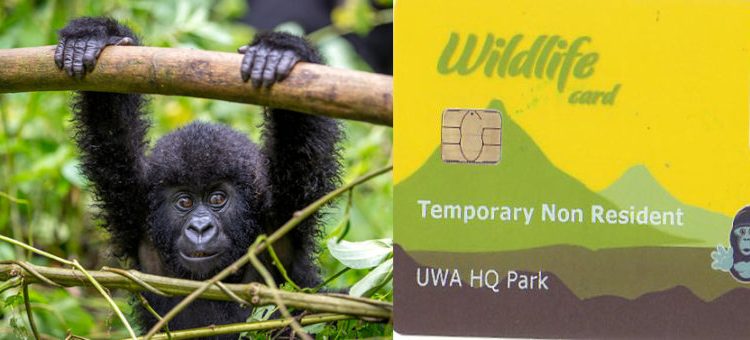
Streamlined Permit Booking Systems
Technology has significantly improved the booking process for Uganda’s premier tourism experiences, particularly gorilla trekking permits. There are two main ways to book your gorilla trekking permit for Uganda in 2025: Booking Directly Through Uganda Wildlife Authority (UWA): Visit the official UWA website or contact their headquarters in Kampala. The digitization of permit booking has made these high-demand experiences more accessible to international tourists while improving transparency and reducing processing times.
The online booking system has also improved permit allocation efficiency. Only 96 gorilla permits (88 permits for Bwindi Impenetrable National Park and 8 permits only for Mgahinga National park) are sold in Uganda per day, and digital systems help manage this limited inventory more effectively, allowing tourists to check availability in real-time and make informed booking decisions.
Tour Operator Digital Platforms
Licensed tour operators in Uganda have embraced digital booking platforms to enhance customer service and operational efficiency. As a full member of AUTO and licensed by the Uganda Tourism Board, Mumwe Safaris is a reputable and trustworthy option for booking your gorilla trekking safari. With Trek Africa Expeditions, you can expect prompt and exceptional service throughout the permit booking process. These platforms provide customers with instant access to availability, pricing, and detailed itinerary information.
Advanced booking systems now offer features such as real-time availability checking, automated confirmation emails, payment processing, and integration with customer relationship management systems. This technological sophistication has elevated the professionalism of Uganda’s tourism industry and improved customer confidence in booking services.
Integration with International Platforms
Uganda’s tourism businesses have increasingly integrated with international booking platforms and travel technology systems. This integration has expanded the country’s reach to global markets, making Uganda’s attractions discoverable through major travel websites and booking engines used by international travelers.
Digital Marketing and Social Media Transformation
Social Media as a Discovery Platform
Technology has revolutionized how potential tourists discover Uganda as a destination. For many tourists, it is word-of-mouth through digital platforms like TripAdvisor and Viator which introduces them to new destinations, but few Ugandan firms are using these platforms to their full advantage. This observation highlights both the opportunity and the challenge facing Uganda’s tourism industry in leveraging digital marketing platforms.
Social media platforms have become powerful tools for showcasing Uganda’s natural beauty, wildlife encounters, and cultural experiences. High-quality photographs and videos of gorilla encounters, wildlife sightings, and scenic landscapes shared on platforms like Instagram, Facebook, and YouTube have significantly enhanced Uganda’s global visibility as a tourism destination.
User-Generated Content and Reviews

Technology has empowered tourists to become brand ambassadors for Uganda through user-generated content. Travelers sharing their authentic experiences through photographs, videos, and reviews on various platforms have created a powerful word-of-mouth marketing ecosystem that reaches potential visitors worldwide.
Online review platforms have also improved service quality across the tourism sector. Hotels, tour operators, restaurants, and attractions now receive immediate feedback from visitors, creating incentives for continuous improvement and helping future travelers make informed decisions.
Digital Storytelling and Content Marketing
Advanced digital marketing tools have enabled Uganda’s tourism stakeholders to create compelling content that tells the country’s tourism story effectively. Professional photography, drone videography, virtual reality experiences, and interactive content have elevated the quality of tourism marketing and created immersive preview experiences for potential visitors.
Mobile Applications and Smart Tourism Solutions
Tourism Mobile Applications
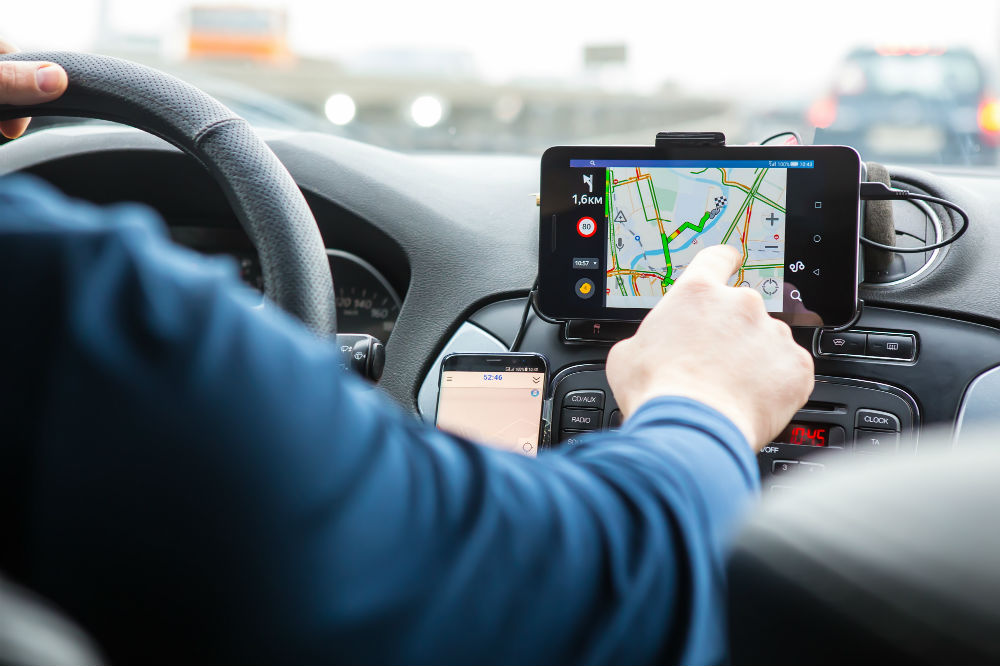
The development of mobile applications specifically designed for Uganda’s tourism sector has enhanced visitor experiences and provided valuable tools for trip planning and navigation. These applications offer features such as attraction information, GPS navigation, weather updates, currency conversion, and emergency contacts.
Some applications integrate real-time information about national park conditions, wildlife sighting reports, and weather updates, helping tourists make informed decisions about their activities and maximize their chances of memorable experiences.
GPS and Navigation Technology
GPS technology has dramatically improved safety and accessibility in Uganda’s tourism sector. Tourists can now navigate to remote attractions with confidence, while tour operators can track vehicle locations for safety purposes and optimize routing for efficiency.
The availability of detailed digital maps and GPS navigation has also enabled the development of self-drive tourism options, appealing to independent travelers who prefer to explore Uganda at their own pace.
Digital Communication Tools
Modern communication technology has enhanced safety and convenience for tourists visiting Uganda. Reliable mobile phone coverage in most tourism areas, combined with internet connectivity, allows tourists to maintain communication with family and friends, access emergency services when needed, and share their experiences in real-time.
E-commerce and Digital Marketplaces
Online Safari Booking Platforms
The emergence of sophisticated e-commerce platforms has streamlined the safari booking process. These platforms integrate inventory management, pricing optimization, payment processing, and customer communication tools, creating seamless booking experiences for international tourists.
Advanced e-commerce solutions now offer features such as dynamic pricing based on demand and seasonality, package customization tools, and integration with international payment systems, making Uganda’s safari products more accessible to global markets.
Digital Marketplace Integration
Uganda’s tourism products are increasingly available through international digital marketplaces and travel platforms. This integration has expanded market reach and provided smaller operators with access to global distribution channels that would have been impossible to access through traditional marketing methods.
Virtual Tourism Experiences
Technology has enabled the development of virtual tourism experiences that complement physical visits to Uganda. Virtual reality tours, 360-degree photography, and live-streaming wildlife encounters have created new ways for people to experience Uganda’s attractions and have proven particularly valuable during periods when physical travel was restricted.
Infrastructure Technology and Connectivity
Telecommunications Infrastructure Development
The expansion of telecommunications infrastructure has been fundamental to tourism technology adoption in Uganda. Improved mobile network coverage, including 4G and emerging 5G networks, has enabled the deployment of sophisticated tourism applications and services.
Uganda has made great strides, with mobile networks allowing for connectivity even in geographically remote areas of the country. This connectivity expansion has been crucial for tourism development in remote areas where many of Uganda’s premier attractions are located.
Internet Connectivity in Tourism Areas
Enhanced internet connectivity in hotels, lodges, restaurants, and tourist attractions has become a competitive advantage and tourist expectation. Reliable Wi-Fi access enables tourists to share experiences in real-time, access information, and maintain business and personal communications during their travels.
The availability of high-speed internet has also enabled tourism businesses to adopt cloud-based management systems, participate in online marketing, and provide digital services to guests.
Digital Payment Infrastructure
The development of digital payment infrastructure has reduced reliance on cash transactions and improved financial security for both tourists and service providers. Point-of-sale terminals, mobile payment systems, and integration with international payment networks have modernized the tourism payment ecosystem.
Transportation Technology Innovations
Ride-Sharing and Transportation Apps
Technology has improved transportation options for tourists in Uganda through ride-sharing applications and digital transportation booking platforms. These services provide transparent pricing, improved safety through driver verification, and convenient booking processes for airport transfers and local transportation.
GPS-enabled transportation services have also improved reliability and reduced confusion for tourists unfamiliar with local geography, enhancing overall travel experiences and reducing stress associated with transportation logistics.
Fleet Management Technology
Uganda tour operators have adopted fleet management technology to improve vehicle maintenance, track location for safety purposes, optimize fuel efficiency, and enhance overall service reliability. These systems provide real-time vehicle monitoring and enable proactive maintenance scheduling that reduces breakdowns and improves tourist safety.
Digital Route Optimization
Advanced mapping and route optimization technology have enabled tour operators to design more efficient itineraries, reduce travel times, and minimize environmental impact through optimized routing. This technology particularly benefits multi-destination safaris and complex itineraries involving multiple national parks.
Conservation Technology and Sustainable Tourism
Wildlife Monitoring and Research Technology
![]() Technology has enhanced wildlife conservation efforts that directly support tourism sustainability. GPS tracking of wildlife, camera traps for research, and digital monitoring systems provide valuable data that helps protect the wildlife resources that attract tourists to Uganda.
Technology has enhanced wildlife conservation efforts that directly support tourism sustainability. GPS tracking of wildlife, camera traps for research, and digital monitoring systems provide valuable data that helps protect the wildlife resources that attract tourists to Uganda.
These conservation technologies also create opportunities for tourists to engage with conservation efforts through citizen science programs, educational technology, and interactive experiences that demonstrate conservation work in action.
Environmental Monitoring Systems
Digital environmental monitoring systems help tourism operators and park authorities track environmental conditions, manage visitor impacts, and make informed decisions about sustainable tourism development. These systems monitor everything from soil erosion to water quality, supporting evidence-based conservation management.
Carbon Footprint Tracking
Advanced technology enables tourism businesses and tourists to track and offset their carbon footprints more accurately. Digital tools calculate emissions from flights, ground transportation, and accommodation, providing options for carbon offset purchases and sustainable travel planning.
Challenges and Digital Divide Considerations
Infrastructure Limitations
Despite significant progress, infrastructure limitations continue to affect technology adoption in Uganda’s tourism sector. Access to digital technologies remains limited for many Ugandans, who find mobile services to be unaffordable. In 2019, less than 70% of the population had access to mobile phones compared to an average of 84% of the population in other, similar countries in the East Africa region.
These limitations particularly affect rural tourism operations and community-based tourism initiatives that could benefit significantly from technology integration but face barriers related to cost, infrastructure, and digital literacy.
Digital Skills Development
The successful adoption of tourism technology requires ongoing investment in digital skills development for tourism workers. Training programs focusing on digital marketing, online customer service, and technology operation are essential for maximizing the benefits of technological innovations.
Cybersecurity Considerations
As tourism businesses increasingly rely on digital systems, cybersecurity becomes a critical concern. The cyber threat landscape keeps on evolving. In addition, the increase in use of digital services across both public and private sector increases the cyber risk and exposure of the country. Tourism businesses must invest in cybersecurity measures to protect customer data and maintain trust in digital systems.
Future Technology Trends and Opportunities
Artificial Intelligence and Machine Learning
Emerging artificial intelligence and machine learning technologies offer significant opportunities for Uganda’s tourism sector. These technologies can enable personalized travel recommendations, predictive analytics for demand forecasting, automated customer service through chatbots, and intelligent pricing optimization.
AI-powered translation services could also break down language barriers and make Uganda’s attractions more accessible to tourists from diverse linguistic backgrounds.
Blockchain and Digital Identity
Blockchain technology presents opportunities for secure, transparent transaction processing and digital identity verification. These capabilities could streamline visa processing, enhance security for high-value transactions like gorilla permit purchases, and create tamper-proof records for sustainable tourism certification.
Internet of Things (IoT) Integration
IoT devices could enhance tourism experiences through smart hotel rooms, environmental monitoring in national parks, real-time crowd management at popular attractions, and predictive maintenance for tourism infrastructure.
Augmented and Virtual Reality
Advanced AR and VR technologies could create immersive pre-visit experiences that help tourists plan their trips, provide enhanced educational content during visits, and create lasting memories through digital souvenirs and virtual revisit opportunities.
Impact on Local Communities and Employment
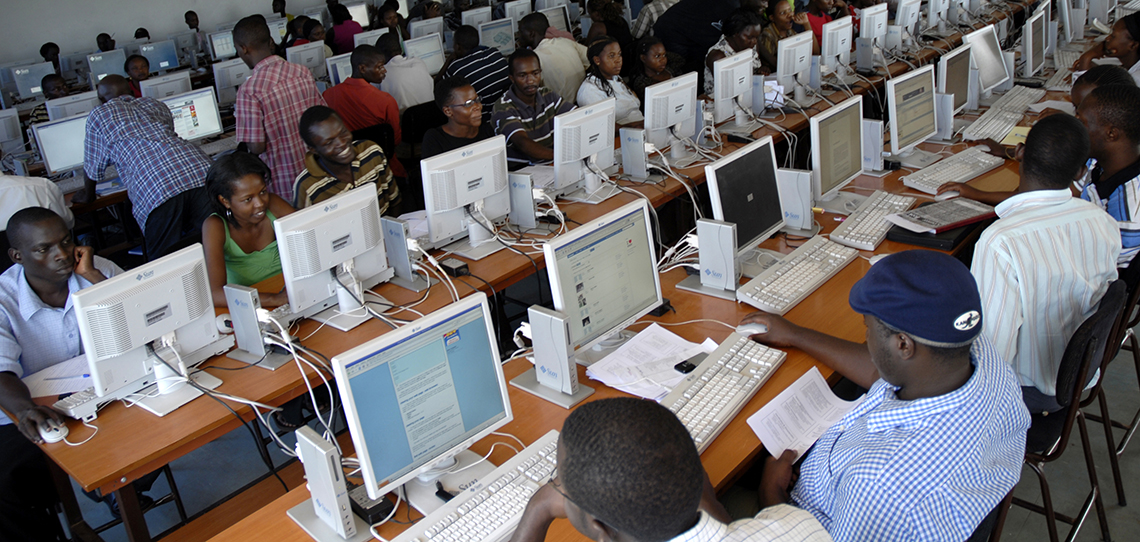
Makerere University students practice in one of the computer labs at the Faculty Information and Communications Technology, Feb.19, 2009.
Photo by Kennedy Oryema
Digital Skills Employment Creation
Technology adoption in tourism has created new employment opportunities requiring digital skills. Social media managers, digital marketing specialists, online booking coordinators, and technology support roles have emerged as important job categories within the tourism sector.
Entrepreneurship Opportunities
Technology has lowered barriers to entry for tourism entrepreneurship, enabling individuals and small groups to start tourism-related businesses with minimal capital investment. Online platforms provide access to global markets that were previously accessible only to large operators with significant marketing budgets.
Community Tourism Enhancement
Digital platforms have enabled community-based tourism initiatives to reach international markets directly, reducing dependency on intermediaries and ensuring that more tourism revenue remains within local communities. Online booking systems, social media marketing, and digital payment solutions have professionalized community tourism offerings.
Economic Impact and Industry Growth
Revenue Enhancement
Technology has contributed significantly to tourism revenue growth in Uganda by expanding market reach, improving operational efficiency, and enabling dynamic pricing strategies that maximize revenue from available capacity. Digital marketing has reduced customer acquisition costs while improving conversion rates.
Market Expansion
Digital technologies have enabled Uganda’s tourism industry to reach new markets and demographic segments that were previously difficult or expensive to access through traditional marketing channels. Social media marketing, influencer partnerships, and digital content creation have democratized international marketing.
Operational Efficiency
Technology has improved operational efficiency across the tourism value chain, from automated booking confirmations to digital inventory management and financial reporting. These efficiency gains translate into cost savings that can be reinvested in service improvements or passed on to customers through competitive pricing.
Regulatory and Policy Considerations
Digital Tourism Standards
The integration of technology in tourism has necessitated the development of new regulatory frameworks and quality standards. Digital service standards, data protection requirements, and technology certification programs help ensure that technological innovations enhance rather than compromise tourist experiences.
Digital Infrastructure Investment
Government investment in digital infrastructure continues to be crucial for tourism technology advancement. Policy decisions regarding internet connectivity, mobile network expansion, and digital payment systems directly impact the tourism sector’s ability to leverage technology effectively.
Technology Training and Education
Educational institutions and training programs must evolve to prepare the workforce for technology-enabled tourism careers. Curriculum development, digital literacy programs, and continuous professional development initiatives are essential for maintaining Uganda’s competitive advantage in technology-enabled tourism.
Conclusion
Technology has fundamentally transformed Uganda’s tourism industry, creating new opportunities, enhancing visitor experiences, and supporting sustainable economic development. From mobile money services that have revolutionized payment systems to sophisticated online booking platforms that connect Uganda’s attractions to global markets, technology has been a catalyst for industry growth and modernization.
The digital transformation of the Uganda tourism sector demonstrates the power of technology to overcome traditional barriers and create inclusive economic opportunities. Mobile connectivity has enabled remote communities to participate in tourism development, while digital marketing has given small operators access to international markets that were previously beyond their reach.
However, realizing the full potential of technology in tourism requires continued investment in digital infrastructure, skills development, and supportive regulatory frameworks. The digital divide that still affects many Ugandans represents both a challenge and an opportunity for more inclusive technology adoption that could further expand tourism’s economic benefits.
Looking ahead, emerging technologies such as artificial intelligence, blockchain, and augmented reality present exciting opportunities for further innovation in Uganda’s tourism sector. The key to success will be thoughtful adoption that enhances rather than replaces the authentic cultural and natural experiences that make Uganda a unique destination.
As Uganda continues its digital transformation journey, the tourism sector stands as a compelling example of how technology can drive economic growth, create employment opportunities, and improve quality of life while preserving the natural and cultural assets that define the country’s tourism appeal. The continued integration of technology with traditional tourism offerings positions Uganda to remain competitive in an increasingly digital global tourism marketplace while maintaining its distinctive character as the “Pearl of Africa.”
